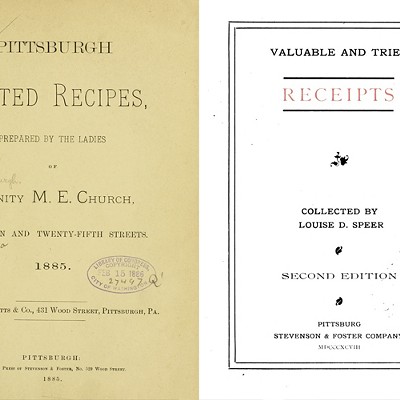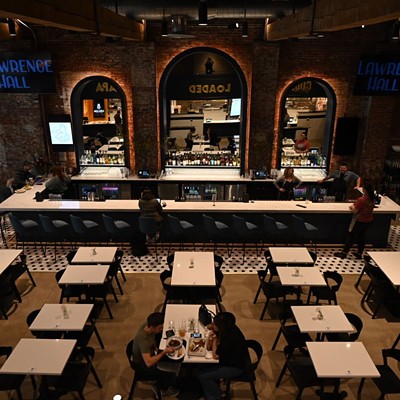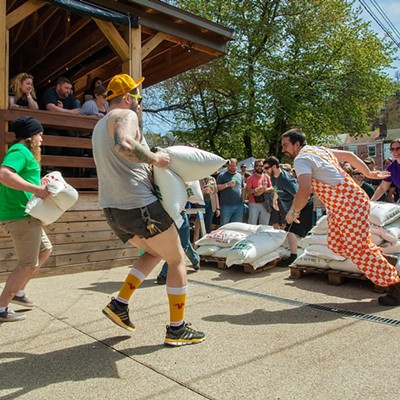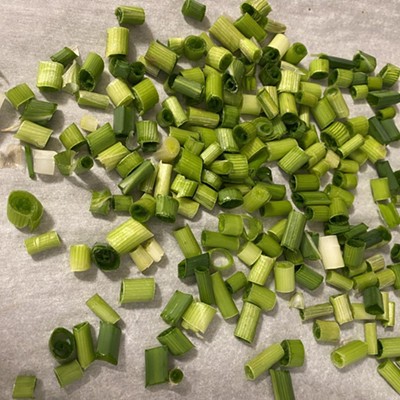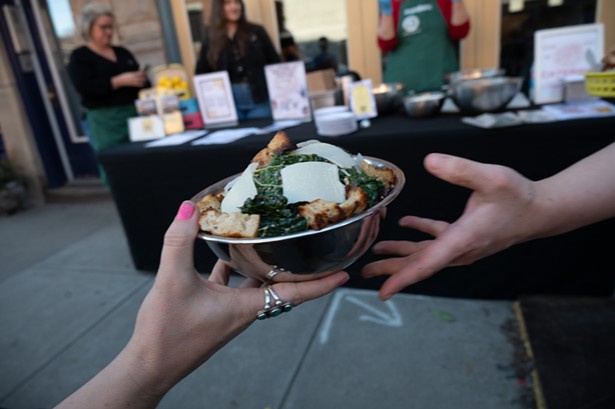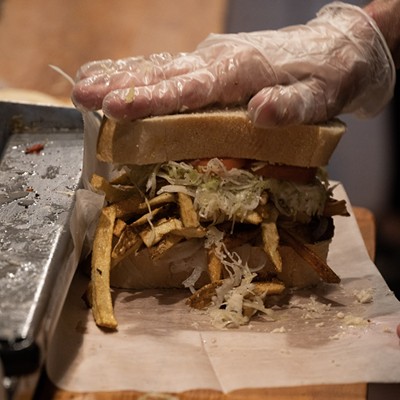One of the attractions of a university is that it spawns and supports diverse eating establishments. Students (and often faculty) keep odd hours; they haven't their own proper kitchen facilities; they date a lot (hopefully); and thrust into the big, new world, they tend to enthusiastically embrace ethnic restaurants. An appreciation of international cuisine is such an easy hallmark of one's newly acquired sophistication -- and when such opportunity is combined with an inexpensive exotic menu, you get culinary institutions to rival the nearby institutions of learning.
Ali Baba -- which has been tucked between Carnegie Mellon and the University of Pittsburgh for 30 years -- is undoubtedly popular with the neighborhood students, faculty and learned sorts (the night I stopped by, there were two men, each dining alone with very thick books), but by dint of its longevity, it attracts a diverse clientele ranging from Granny celebrating her birthday to two men in suits who spent an hour discussing the merits of digital telephones.
Some restaurants specializing in regional food let one consume relatively ordinary foods that aren't generally on American menus like kale or chickpeas. It was in this spirit that we began with an artichoke salad ($3.25). Here a large portion of soft artichoke hearts were chopped up and served in a creamy sauce accented with garlic, oregano and sesame. We tore up the complimentary pita bread and used it to mop up the residual sauce, which was thick and tasty enough to be a dip.
My companion then moved on to his entrée. The lamb shank ($9.95) was a great piece of basic-meat-on-a-plate: a bone with two substantial hunks of meat just barely hanging on. The lamb was very tender: When poked with the fork, it just fell away from the bone in succulent strips. The sweetness of the lamb was accentuated by the tomato sauce in which it had been cooked, though the residual sauce on the plate was a little greasy. The lamb was accompanied by seasoned rice: white rice mixed with browned egg noodles and pine nuts.
There's over two-dozen a la carte items on the menu, and this is where the inventive -- and budget-conscious -- diner can really score. Mix-and-match salads, vegetarian specialties, dips, pies and soups. I made a meal of three side dishes, and had plenty left over; two would have sufficed. The table of six near us forwent any entrees. They simply ordered about 10 side dishes and happily shared them all.
The first of my three side dishes was a cup of the Syrian soup ($1.75), a sweet and hearty blend of lentils, rice and onions. It was creamy and flavorful, and free of that starchiness one sometimes encounters with lentils. These lentils had been slow-cooked into tender submission.
The hot weather makes one long for sharp, crisp cool salads and I eagerly ordered the fatoosh ($3.75). This would be a perfect, light follow-up to the warm filling soup. The fatoosh was a large plate of chopped cucumbers, tomatoes, green onions, parsley, mint, lettuce and toasted pita chips in a lemon juice and vinegar dressing. An extra 50 cents was well spent on the added fistful of feta cheese set off by a Kalamata olive. The piquant dressing, the sharp cheese, the sweetness of summer tomatoes, the crunch of the pita chips: This is a wonderful salad filled with diverse and refreshing sensations.
It was also plenty big, which didn't leave much room left for my cheese pie ($2.95). (Made fresh, it arrived last.) One could call it a "pie," but it was closer to a flat pasty. (A pasty is a soft meat "pie" where the filling is enclosed in dough and baked.) This "pie" looked like a flat handkerchief folded into a triangle with the creases baked to a lovely golden-brown. Filled with dry cottage cheese and onions, the pie was sweet and moist inside. It came with a knife and fork, but its very shape illustrated what a perfect meal-on-the-go this would be. (Ali Baba also offers a spinach pie.)
"To-go" was the operative term, since I ended up getting most of my pie wrapped up for take-away. I demurred on dessert, but our server countered that the sweets were cheap (most are one mere dollar) and compact. I surrendered and ordered halawa bi-jibin -- the most expensive at $1.25 and the most exotic sounding: a farina cake roll cut into a diamond shape, filled with whipped cheese and topped with ground pistachios. When isolated from the surrounding thick sweet syrup of rosewater the cake tasted somewhat like cheesecake, but I found the flowery syrup to be a bit heady. Eat and learn, I say. Dining out should be perpetually educational. * * *


